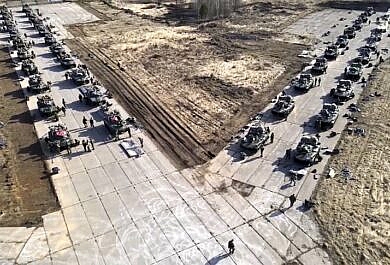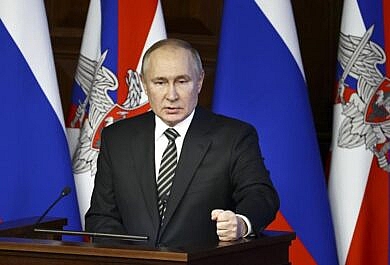President Recep Tayyip Erdogan of Turkey has ruled for two decades but his grip on power is in jeopardy as the country’s presidential election appears to be headed to a runoff vote.
Summary
President Recep Tayyip Erdogan of Turkey has governed the powerful NATO ally straddling Asia and Europe for two decades in an increasingly authoritarian fashion, but his grip on power is in jeopardy as the country’s pivotal presidential election appears to be headed to a runoff vote.
- Per the AP, the unofficial count as of Sunday evening had Erdogan falling below the 50% threshold needed to avoid a runoff against Kemal Kilicdaroglu, the leading opposition candidate, in two weeks.
- The two candidates are competing to govern Europe’s second largest country – and NATO’s second largest military – during a period of 85% inflation that’s contributed to a cost of living crisis.
- Both sides are claiming a lead, and the official results are not expected to be announced by the Supreme Election Council for hours if not days. The campaign was dominated by domestic issues, mainly the soaring inflation rate and the aftermath of February’s devastating earthquakes.
- Erdogan has ruled Turkey since 2003, first as prime minister and since 2014 as president. Erdogan successfully pushed through a constitutional change in 2017 following a failed coup in 2016 granting the presidency vast powers.
- Erdogan has stifled the opposition, purged tens of thousands of civil servants and cracked down on critical voices in the media in the years since the coup attempt.
- His government is now under fire for his management of the economy and an accused slow response to the February earthquakes and lax enforcement of building codes that contribute to the high death toll.
- Kilicdaroglu, 74, leads a coalition of six opposition parties and is running on a pro-democratic, pro-Western platform. The opposition leader has vowed to restore Turkey’s parliamentary system and restore independent courts and freedom of the press.
![]()
- The New York Times summarized the changing perceptions of Erdogan in the West: “At the start, he was widely hailed as an Islamist democrat who promised to make the predominately Muslim country and NATO member a bridge between the Muslim world and the West. But more recently, critics have accused him of pushing Turkey toward one-man rule and exacerbating a deep economic crisis.”
- CNN noted a runoff election would be a first for Erdogan after 20 years in power. With 91% of the vote counted at time of writing, Erdogan maintained a 5-point lead over Kilicdaroglu while still falling below the threshold necessary to avoid a runoff.
- The Guardian broke down the preliminary results from Turkey’s major cities. “Turkey’s largest city, Istanbul, has swung towards Kemal Kılıçdaroğlu but only just…Turkey’s second-largest city, Ankara, also went for the opposition candidate and its third largest Izmir did too. Bursa, the country’s fourth largest city, and Konya, a traditional conservative strong-hold and the fifth largest were kept by the AKP-led People’s Alliance.”
![]()
- The Wall Street Journal wrote the results of Turkey’s election could “have far-reaching geopolitical consequences for the Middle East, Ukraine and the North Atlantic Treaty Organization.”
- The New York Post noted: “More than 64 million voters, including 3.4 million Turkish citizens living overseas, are eligible to vote in the election, and will also cast ballots for the country’s 600-member parliament.”
- Fox News observed 2023 marks the centennial of the founding of the Republic of Turkey as a “modern, secular state born on the ashes of the Ottoman Empire” in the aftermath of the First World War. Kilicdaroglu has pledged to restore secular governance after years of Erdogan’s conservative, Islamist governance.
© Dominic Moore, 2023






